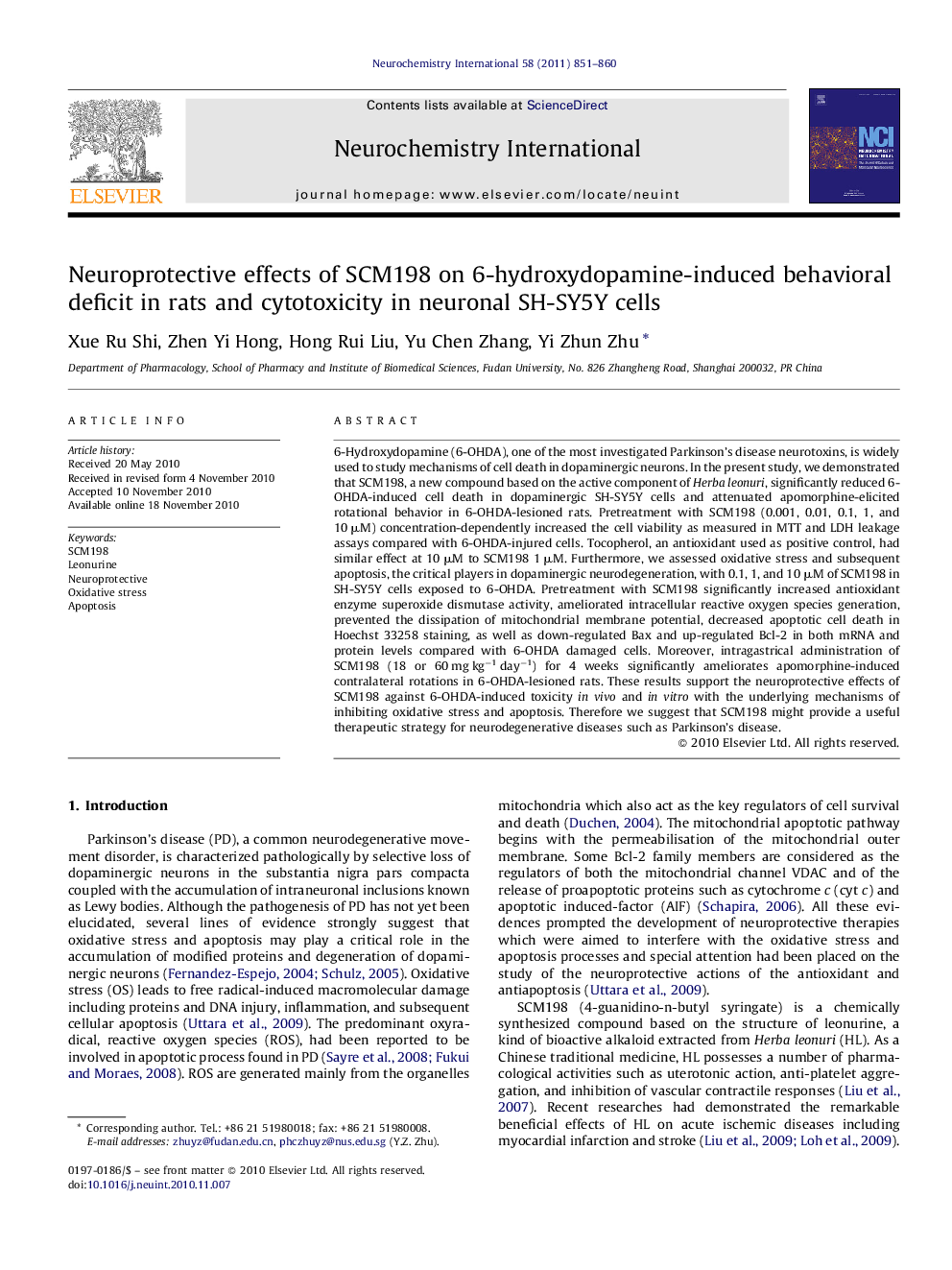| کد مقاله | کد نشریه | سال انتشار | مقاله انگلیسی | نسخه تمام متن |
|---|---|---|---|---|
| 2201058 | 1099995 | 2011 | 10 صفحه PDF | دانلود رایگان |

6-Hydroxydopamine (6-OHDA), one of the most investigated Parkinson's disease neurotoxins, is widely used to study mechanisms of cell death in dopaminergic neurons. In the present study, we demonstrated that SCM198, a new compound based on the active component of Herba leonuri, significantly reduced 6-OHDA-induced cell death in dopaminergic SH-SY5Y cells and attenuated apomorphine-elicited rotational behavior in 6-OHDA-lesioned rats. Pretreatment with SCM198 (0.001, 0.01, 0.1, 1, and 10 μM) concentration-dependently increased the cell viability as measured in MTT and LDH leakage assays compared with 6-OHDA-injured cells. Tocopherol, an antioxidant used as positive control, had similar effect at 10 μM to SCM198 1 μM. Furthermore, we assessed oxidative stress and subsequent apoptosis, the critical players in dopaminergic neurodegeneration, with 0.1, 1, and 10 μM of SCM198 in SH-SY5Y cells exposed to 6-OHDA. Pretreatment with SCM198 significantly increased antioxidant enzyme superoxide dismutase activity, ameliorated intracellular reactive oxygen species generation, prevented the dissipation of mitochondrial membrane potential, decreased apoptotic cell death in Hoechst 33258 staining, as well as down-regulated Bax and up-regulated Bcl-2 in both mRNA and protein levels compared with 6-OHDA damaged cells. Moreover, intragastrical administration of SCM198 (18 or 60 mg kg−1 day−1) for 4 weeks significantly ameliorates apomorphine-induced contralateral rotations in 6-OHDA-lesioned rats. These results support the neuroprotective effects of SCM198 against 6-OHDA-induced toxicity in vivo and in vitro with the underlying mechanisms of inhibiting oxidative stress and apoptosis. Therefore we suggest that SCM198 might provide a useful therapeutic strategy for neurodegenerative diseases such as Parkinson's disease.
Research highlights
► SCM198 (Leonurine) possessed neuroprotective potential both in vivo and in vitro.
► SCM198 exerted neuroprotective effect by inhibiting oxidative stress and apoptosis.
► We can develop therapeutic strategy for neurodegenerative diseases based on SCM198.
Journal: Neurochemistry International - Volume 58, Issue 8, July 2011, Pages 851–860